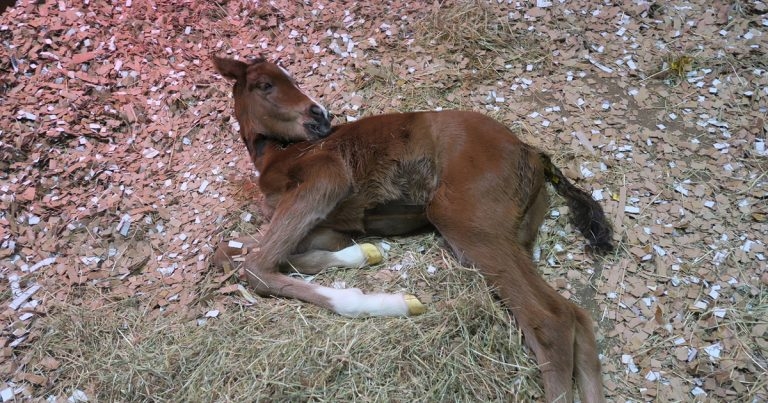10 Jan 2020
The triennial event, which has been running for 35 years, is hosted alternately by BEVA and the American Association of Equine Practitioners (AAEP).

A foal with colic (meconium impaction). Image: Tim Mair
Details have been announced for the 13th International Equine Colic Research Symposium, to be held from 15 to 17 July 2020 in Edinburgh.
The triennial event, which has been running for 35 years, is hosted alternately by BEVA and the American Association of Equine Practitioners (AAEP).
The meeting will comprise 12-minute oral presentations on a breadth of topics, including surgical techniques, treatment, parasitology, gastric ulceration, endotoxemia, pharmacology of intestinal motility, colic complications, epidemiology, physiology of digestion, the intestinal microbiome and metabolomics.
Each session will be followed by three minutes for questions and discussion. Poster sessions on the first two days will cover ground beyond the oral presentations and delegates will be able to review and discuss the work with presenters.
During the two days preceding the symposium, delegates have the opportunity to book a two-day advanced course on colic surgery (13 to 14 July). The course will include 1.5 days of lectures, presented by David Freeman from the University of Florida, followed by a half day of practical sessions (including cadaver/syndaver surgery and abdominal ultrasonography).
Although a large focus of the course will be on small intestinal resection and anastomosis (and prevention of complications), other commonly performed procedures will be discussed, including jejunocaecostomy, large colon resection and anastomosis, small colon resection, epiploic foramen closure with mesh and repeat coeliotomy.
The course will enable delegates to improve their understanding of surgical techniques, refresh their knowledge and build confidence in performing surgical procedures.
Clinicians and scientists have until 1 February 2020 to submit abstracts of recent work that they wish to present at this meeting. The scientific committee will consider abstracts on all aspects of equine gastroenterology, including basic science research and reports of clinical cases or novel approaches to treatment.
Limited places are available for the symposium. Guidelines for abstract submissions, the course programme and event information can be found via the BEVA website.